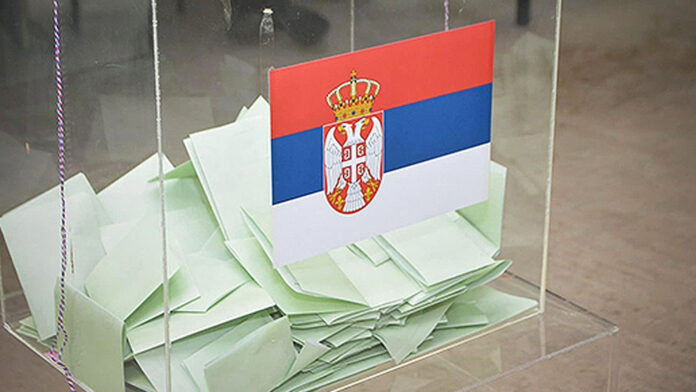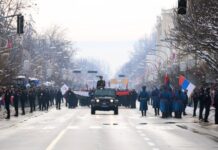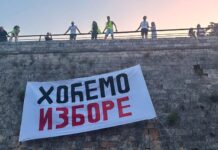The end of 2023 passed in the shadow of early elections; preceding the New Year’s and Christmas holidays was an electoral race – which, as it seems, was anything but thrilling and rather one-sided. It could be said that absolute dominance in this competition was taken by one man who is so dominant that he achieves victories even when he officially doesn’t compete.
“Vučić achieves a convincing victory” – reads the headline of post-election texts in almost all media, which, in essence, isn’t entirely true. Aleksandar Vučić, at least officially, did not win anything, and although this sounds strange, the President of Serbia not only personally did not achieve victory in parliamentary and local elections (where the president isn’t elected at all), but even the party he is part of, again at least on paper, isn’t his to rule. After the tragedies that occurred on May 3rd and 4th of this rather tough outgoing year, one man, in response to the then-civil protest – as dramatically as only he can – announced his departure from the helm of the Serbian Progressive Party. And although this departure did indeed happen, our dear president still remains the face of this organization (it seems of many others too), and it appears their members; numbering over 700,000 (a staggering figure, I know), mostly former Tito’s pioneers, have replaced pictures of the late Marshal with images of a new, somewhat more mobile leader.
How did we get here? How did Serbia, historically known as a country with a vast number of revolutions and often a high level of civil disobedience, become one of the least democratic countries in Europe? These elections prove and demonstrate not only a lack of democratic consciousness but a lack of consciousness in general. When you have a country where one party literally has more than 10% of the entire population as its members, then you get what we’ve got now – a mass of zombified voters, who, munching on sandwiches, go to vote. And I don’t blame them; I think it’s important to say that. They are not criminals, they are not elites, and definitely, the vast majority of them do not have deep pockets. They are not particularly educated, not radical, and simply not informed enough to do anything beyond their herd. Voters (and mostly members) of the SNS are just ordinary, to say the least, simple people who do not know any better. A large part of them will never use the high-speed rail, they will unfortunately travel to political rallies through those highways – a kind of enclosure, and definitely won’t travel much besides this, so they won’t be able to see their own helplessness. Simply put, they will put on rose-tinted glasses of Pink TV to add at least a little color to their very dark reality, about which they lack awareness. When all these are compounded by malpractices, proven pressures, and the petty interests of individuals – we get this – a convincing and easy victory of a man who officially doesn’t even participate in the elections.
However, as the SNS and its leader (former – I had to Google search the current one) are well known after their decades-long rule, it would be fair to say that they, at least as it seems, are not the sole culprits for such a criminal state in the political realm. While the current regime has killed the electoral process in Serbia by essentially equalizing the state apparatus with one individual, the current, defective opposition has buried them. If you were to ask the average citizen of Serbia about the government, you would get one answer (Vučić), but when asked about the opposition, you would receive such a broad yet limited spectrum of answers that you would, at the very least, give up on any alternatives. Dear readers, this is a significant problem. The opposition includes Marinika and Boško, Tadić, as well as Šešelj, all worn-out politicians, active for quite a long time, with old, worn-out, and mostly unsuccessful ideas, if they have any at all. My fellow citizens and I have hardly had the chance to see a decent and somewhat respectable program that would offer at least some insight into a potential alternative future. Perhaps that’s precisely why that future hasn’t emerged. (“When the army returns to Kosovo” and similar, unsubstantiated slogans don’t count).
Once again, Serbia has proven its contradiction, where when diversification is needed, such as in political programs or, God forbid, new (youthful) political options – it does not exist. On the other side – where a real, meaningful unity is needed, we saw people marching together who probably wouldn’t even encounter each other on the street. All in all, a general political confusion that would cause a kind of schizophrenic tearing even in serious political analysts, but this is Serbia, the Balkans, and here, everything is possible.
In the end, I’ll just say that I am sad, not so much because the SNS won, but because it was so easy and straightforward… undemocratic. And although I am personally pleased with the near disappearance of extremist parties in these elections, I still cannot help but wonder: what do we need left-wing or right-wing for? We have one man who is everything – a Russophile and a European, a liberal and a conservative, and sometimes even a radical (the latter has been proven). Yet, this winter is mild, so why shouldn’t the elections be the same?
Author: Darko Mandic













